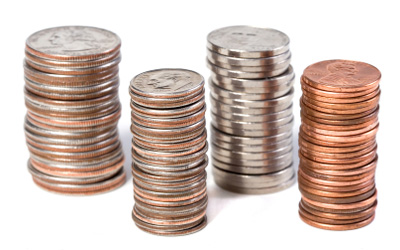



One of the great things about a new school year is that it’s much like New Year’s-you get the chance for a fresh start. That’s why it’s crucial to create a budget right at the beginning and follow through with it the entire year.
Last September, Krystal V., a fourth-year student at the University of British Columbia in Vancouver, picked up her usual necessities-pens, notebooks, binders, and even a new backpack-but one particular item made a huge difference in her financial life: a budget planner.
“Creating a budget has never been a priority for me, and as a student, I didn’t think it would be useful. But once I started budgeting, I found myself saving more money because I knew exactly where it came from and where it went,” she says.
Creating a budget helps you spend less than you earn so you can save up money for big purchases and have money set aside for financial emergencies such as losing your job or an unexpected car expense.
It’s also a stress reliever. “Along with exams, financial issues are one of the biggest concerns for students. Many spend freely during the year without realizing they have to pay their loans back,” says Frank Rizzi, Financial Operations Officer at the Humber Students’ Federation in Toronto, Ontario.
Rizzi says, “Creating a budget is the best way to [take control] and avoid a situation like this.” He suggests three things:
In a recent Student Health 101 survey, the majority of students said they’ve already created a budget, but more than 32 percent haven’t. Many students don’t because they don’t have the time, or they can relate to Seon Y., a first-year student at the University of Waterloo in Ontario. She says, “I just started making money and spending a considerable amount of it. I’m new to handling money and so the idea of budgeting is still new.”

Setting a weekly budget only requires tools as basic as a pen and paper, but you can also use ledgers and spreadsheets on your computer, or even an app to create one.
Here’s an easy step-by-step guide:
Figure out what’s available to spend.
Calculate your income by adding together all of the money you bring in every month through jobs, government loans and grants, scholarships, and any other income. Make sure you don’t include unreliable funds such as monetary gifts. To figure out your weekly income, divide the total by four.
Create a list of your weekly expenses.
This includes everything from daily coffee to a night at the movies, bus fare, and food shopping. Whatever you have to pay for, include it. It’s best to categorize all of your expenses into groups, such as:
Write down the estimated amount of money you spend on each item on your list. Jana L., a first-year student at York University in Toronto, split her expenses into two categories: fixed and variable. “My phone bill and rent are always the same every month, so these are my fixed expenses,” she explains. “Things that I’m unsure of, such as food and shopping trips at the mall, are variable expenses.”
Compare your income and expenses.
Subtract your total expenses from your total income. If you have money left over, you can relax, because you have a positive cash flow!
Consider putting the extra money into a savings account, which will be handy during emergency situations or when you want to splurge on something.
If your expenses exceed your income, you’ve got a negative cash flow and it’s crucial that you rethink your spending. Start by separating your wants from your needs.
“I’m someone who is easily tempted to buy things on a whim, especially clothes. My closet is already full, yet I keep buying more. I never realized just how much I was spending on unnecessary shopping, but now I know to limit myself,” says Sonia D., a fourth-year student at the University of Guelph in Ontario.

The key to staying on budget is self-discipline. Robert T. Kiyosaki, author of Rich Dad, Poor Dad, says, “Lack of self-discipline causes most lottery winners to go broke soon after winning millions.” Here are some tips:
Joanne G., a second-year student at the University of Toronto, suggests using only cash for daily expenses. “Instead of using my credit or debit card, I withdraw the exact amount of cash that I can spend. It helps me keep track of how much I have left for the week.”
Setting a weekly budget and sticking to it may be a little work, but the benefit of having more money in your wallet is worth it.
Naomi is a third-year media studies student at the University of Guelph-Humber.
Tracking your budget has never been easier thanks to technology, particularly smartphones. No matter how busy your schedule may get, apps are convenient for organizing your weekly budget.
Some great apps include:
My Weekly Budget (MyWB) by AvocSoft LLC
Available for: iPhone, iPod touch, and iPad
Where to find: iTunes app store
MoneyWise
Available for: Android
Where to find: Google play
BillMinder by return7 LLC
Available for: iPhone, iPod touch, and iPad
Where to find: iTunes app store
Mint
Available for: PC, Mac, Android, iPhone, iPod touch, and iPad
Where to find: mint.com
iTunes app store
Google Play
Cash-Strapped by John Griffiths
Available for: iPhone, iPod touch, and iPad
Where to find: iTunes app store




